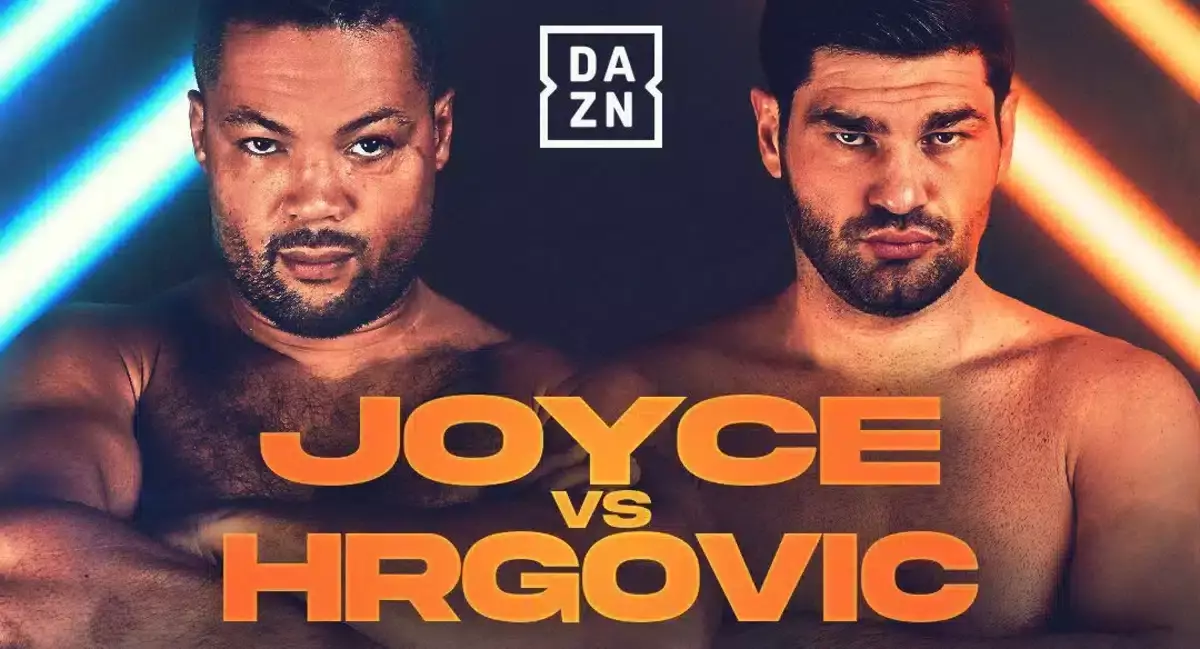In the unforgiving world of heavyweight boxing, public opinions can shape a fighter’s career, and few opinions sting quite like that of renowned promoter Eddie Hearn. As Joe Joyce prepares to face Filip Hrgovic, Hearn has declared Joyce’s imminent defeat with alarming candor, predicting he’ll be “well-beaten” within a mere three to four rounds. While some might attribute Hearn’s harsh critique to the cutthroat nature of the sport, it raises questions about respect and accountability in a business often devoid of both.
Hearn’s tendency to butter up a fighter before delivering a knockout punch of criticism has become somewhat of a signature move. In this instance, while he highlighted Joyce’s “resilience,” the tacit undertone suggested that this resilience is now a relic of a past glory rather than a viable fighting strategy. For someone who has faced significant adversity—three losses in his last four outings—Joyce’s predicament is compounded by being judged through the cruel lens of a promoter’s self-interest. Is Hearn genuinely concerned about boxing’s integrity, or is he merely strategizing for his own interests? The skepticism surrounding his comments can hardly be dismissed.
The Fighter’s Journey: From Hope to Hurdles
Joe Joyce’s career, once filled with promise and potential, appears to be marred by a series of increasingly overwhelming challenges. His two most recent losses, including a brutal defeat to Zhilei Zhang and a contentious points loss to Derek Chisora, signify not only a decline in performance but a concerning alteration in perception. Hearn’s remarks regarding Joyce’s fading punch resistance serve as a stark reminder of the physical toll that countless rounds in the ring can inflict, especially in a sport where toughness is often romanticized over skill.
Acknowledging Joyce’s battles, one can’t help but admire a fighter who remains undeterred, eager to climb the competitive ladder despite tangible setbacks. This grit should not be diminished or overlooked, and rather than proclaiming his doom, boxing aficionados might benefit from a deeper exploration of what resilience truly means in a sport where physical finesse often trumps mental fortitude.
The Fight That Could Alter Everything
The impending showdown against Hrgovic is pivotal for Joyce—or so it seems. With each loss, the shadows of doubt become more pronounced, encircling him with the potential for a merciless end to his career aspirations. This match is not merely a contest of skill; it’s a defining moment, a potential turning point. For Hrgovic, it’s an opportunity to break through the hype and silence skeptics. Yet, the stakes extend beyond mere pride; the fight represents a clash of contrasting narratives, with each fighter fueled by their own sense of urgency.
As Joyce steps into the ring, the weight of his past battles collides with the bright lights of a televised spectacle. Will he thrive under pressure or succumb to the expectations swirling around him? These questions loom larger than any analysis provided by industry insiders. Although Hearn’s analysis seems designed to set the stage for Hrgovic’s victory, it inadvertently underscores the drama inherent in Joyce’s journey. This tension culminates in a high-stakes encounter that promises a gripping spectacle for fans worldwide.
A Deeper Reflection on Athletic Integrity and Promotion
Eddie Hearn’s comments, while sensational, echo a troubling trend within sports: the reluctance to support seasoned fighters when they undergo trials that reveal their vulnerabilities. As boxers like Joe Joyce face the dual threat of public scrutiny and physical decline, it becomes crucial for commentators and promoters to balance their analyses with empathy rather than exploitative cynicism. Hearn’s relentless critiques may invigorate narratives, but they also raise ethical concerns around the treatment of athletes who spend their lives dedicating themselves to the sport.
Ultimately, boxing is not just about headlines and accolades; it’s about humanity, tenacity, and the sport’s intrinsic beauty. It serves as a reminder that while triumphs are celebrated, tribulations deserve recognition too. Constructive dialogue around athletes’ experiences can foster a healthier environment where resilience is honored, not ridiculed. Joe Joyce’s upcoming match isn’t just about winning or losing; it’s a pivotal juncture that echoes larger themes in the sporting landscape, where each fighter’s journey is filled with lessons waiting to be learned.

